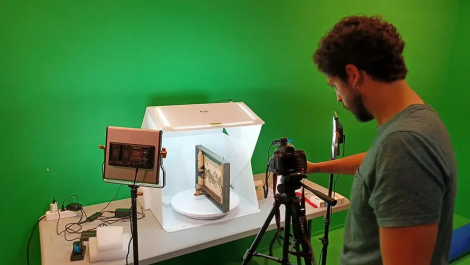-
Join the
Digital Meets Culture
Newsletter! -
Join the
Digital Meets Culture
Open Newsroom! If you have interesting news and events to point out in the field of digital cultural heritage, we are waiting for your contribution.
If you have interesting news and events to point out in the field of digital cultural heritage, we are waiting for your contribution.
-
Free text
-
-
Upcoming events
-
 Vila-seca, Catalonia, Spain. June 17-20, 2025
Vila-seca, Catalonia, Spain. June 17-20, 2025The ATLAS Annual Conference 2025 is taking place from 17 to 20 June 2025 in Vila-seca, Catalonia, organised by the ATLAS Association for Tourism and Leisure Education and Research. The theme of the event of this year is Tourist destinations … Continue reading →
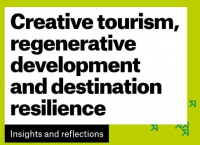 Launch of new book: Creative Tourism, Regenerative Development, and Destination Resilience
Launch of new book: Creative Tourism, Regenerative Development, and Destination ResilienceThe CREATOUR Observatory delivered the new interesting book Creative Tourism, Regenerative Development, and Destination Resilience. The book draws upon the international conference, “Creative Tourism, Regenerative Development, and Destination Resilience”, which was held 8 to 10 November 2022 in the Azores, … Continue reading →
Topic: software & tools
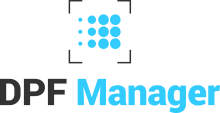
On Wednesday, December 13, PACKED and the Royal Library of Belgium, in collaboration with the University of Girona, organise a workshop “Quality Control of TIFF Files”. The workshop is intended for digital archivists who are responsible for the long-term preservation of TIFF files. During the workshop you will learn how to gain an insight into the technical properties of TIFF files and what you can do to preserve them for future generations. The workshop is conceived as a hands-on session, where participants get started with TIFF files from their own collection. Continue reading
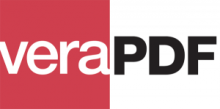
On Friday, November 24, PACKED and the Royal Library of Belgium, in collaboration with the Open Preservation Foundation, organise a workshop “Quality Control of PDF Files”. The workshop is intended for digital archivists who are responsible for the long-term preservation of PDF files. During the workshop you will learn how to gain an insight into the technical properties of PDF files and what you can do to preserve them for future generations. The workshop is conceived as a hands-on session, where participants get started with PDF files from their own collection. Continue reading
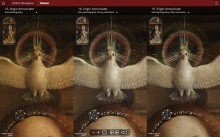
The Getty Foundation and the Royal Institute for Cultural Heritage (KIK-IRPA, Brussels) announced today the launch of major enhancements to the website ‘Closer to Van Eyck,’ which provides breathtaking details of one of the most important works of art in … Continue reading

Announcing the “Culture and Computer Science” conference entitled “Hybrid Systems” – the 16th edition of the ”Culture and Computer Science“ conference series brings into focus best practice examples, challenges and future trends in the fields of hybrid systems, augmented, mixed … Continue reading
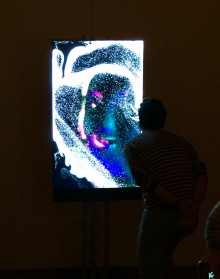
The intensity of a dance resides in its weightless stream of movement and harmony, and in the single beat which connects one moment to the next. Dance has the power both to give meaning to time and to create the … Continue reading

Patchlab Digital Art Festival, organised in Krakow since 2012, is an international event dedicated to interdisciplinary (post)digital art forms, created at the intersection of art, new technologies and creative programming. During the 6th edition, taking place 24-29th October this year, … Continue reading
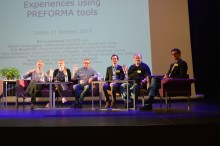
Hosted by the National Library of Estonia, the PREFORMA International Conference “Shaping our future memory standards” brought together 150 people worldwide to discuss the importance of standardisation and file format validation for the long term preservation of digital cultural content, discover the potential of the open source conformance checkers developed in PREFORMA and look at future challenges and opportunities. Continue reading

We are pleased to announce that The PREFORMA Handbook is now available to download. This publication is intended as a practical guidebook to be offered as a critical instrument to decision-makers in cultural heritage institutions, to support them in the analysis of problems and the identification of viable solutions, and as a technical reference to managers of digital archives and developers, to offer them guidance on how to use the PREFORMA tools. Continue reading
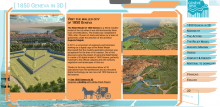
The Relief Model of 1850 Geneva is a 30sm metallic model of the city when it was still enclosed by three rows of fortifications. The model was completed in 1896, after 18 years of study and labour, by a team … Continue reading
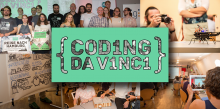
Invitation: First meet-up of European GLAM Hackathon organisers in Berlin Date: 04th of December 2017 from 10 to 15 Venue: Wikimedia Deutschland e.V. Tempelhofer Ufer 23-24 in 10963 Berlin, Germany Host: the organisers of Coding da Vinci (DDB, digiS and … Continue reading




























